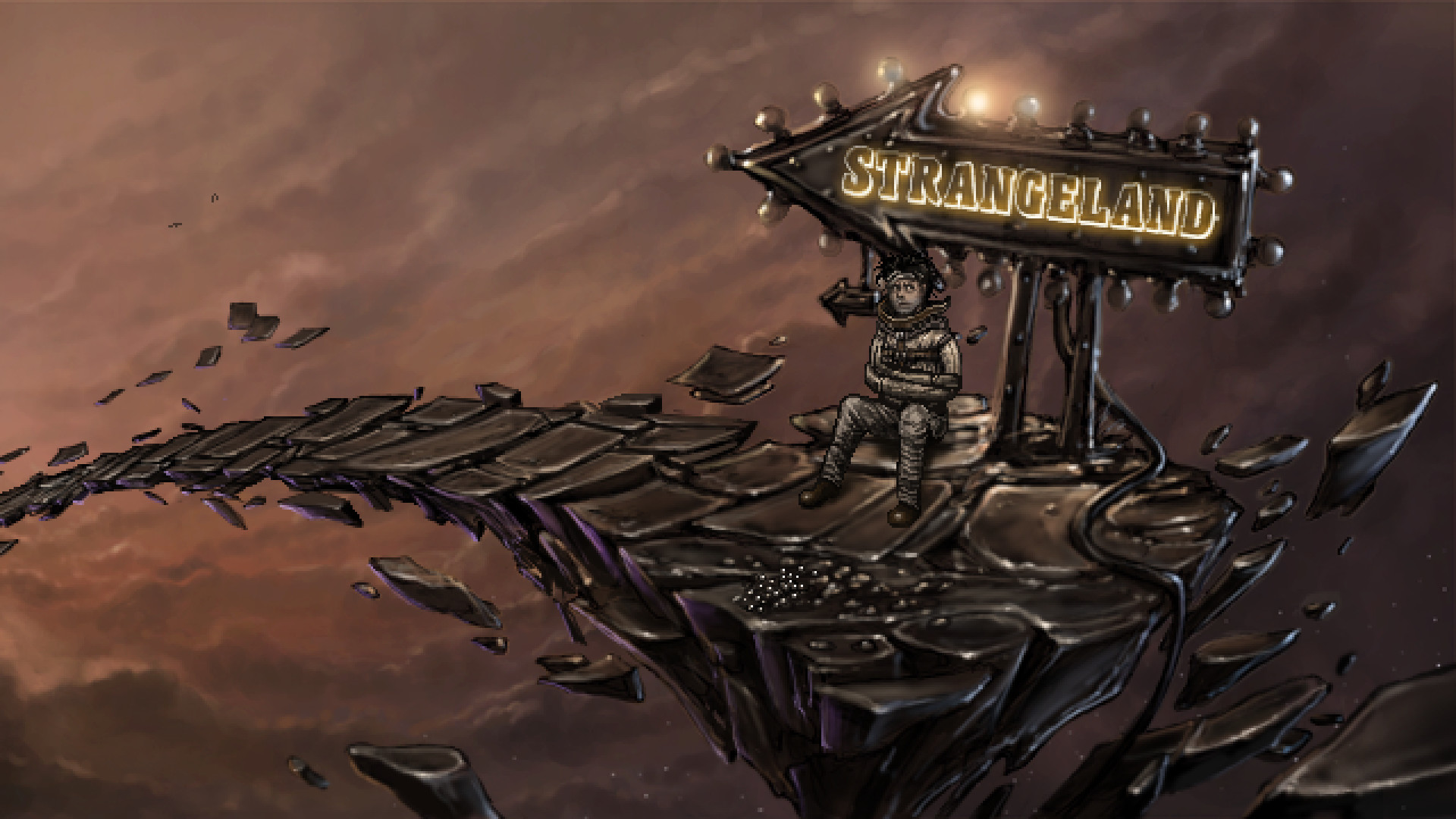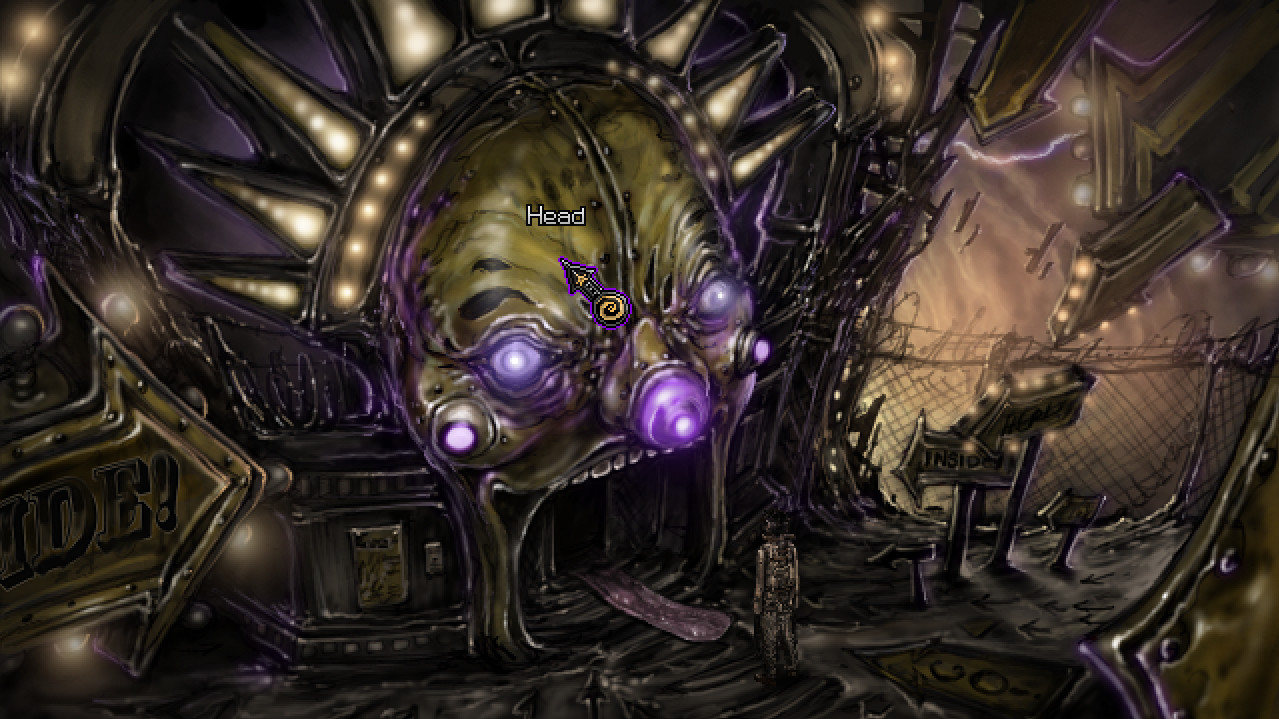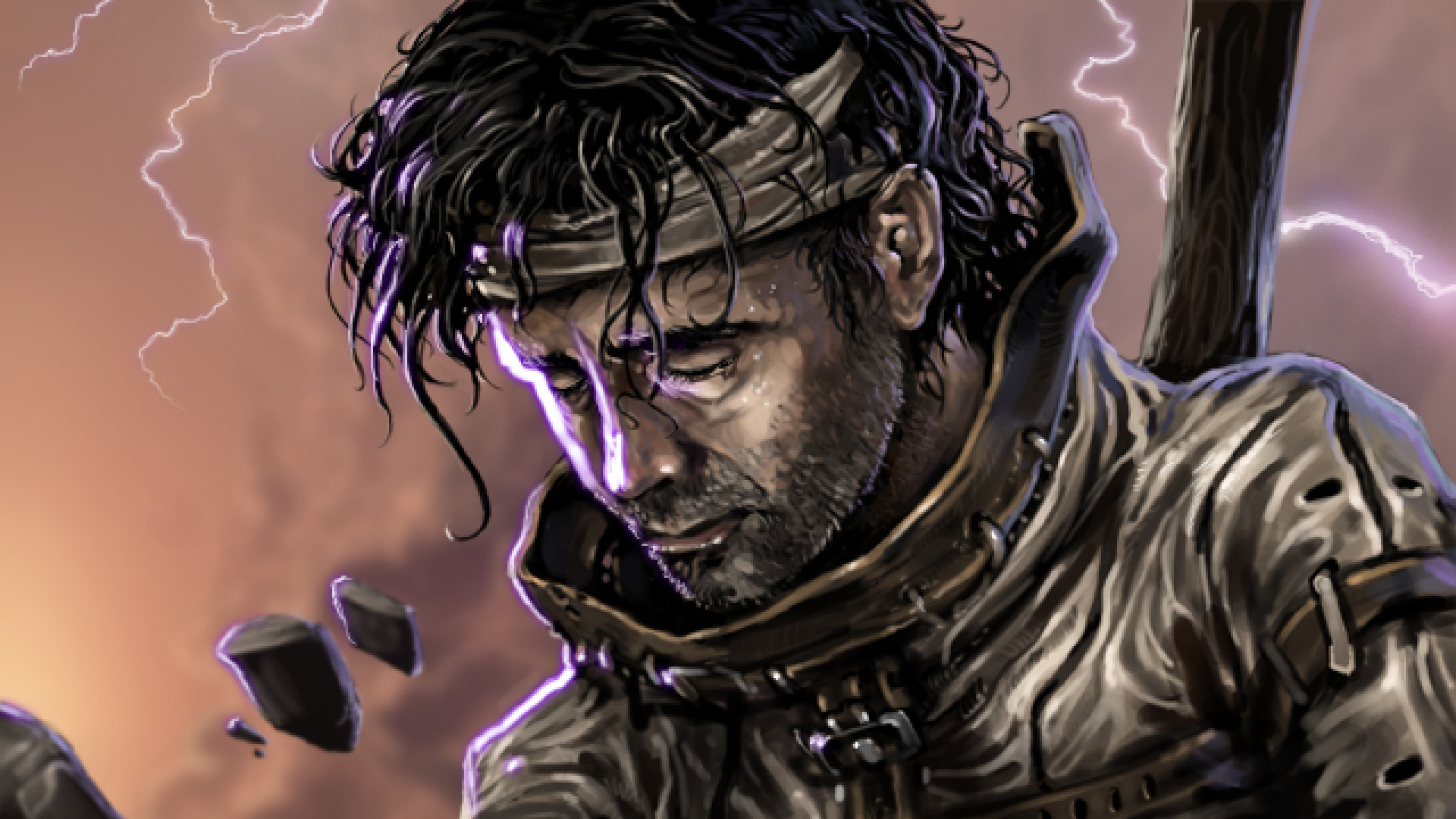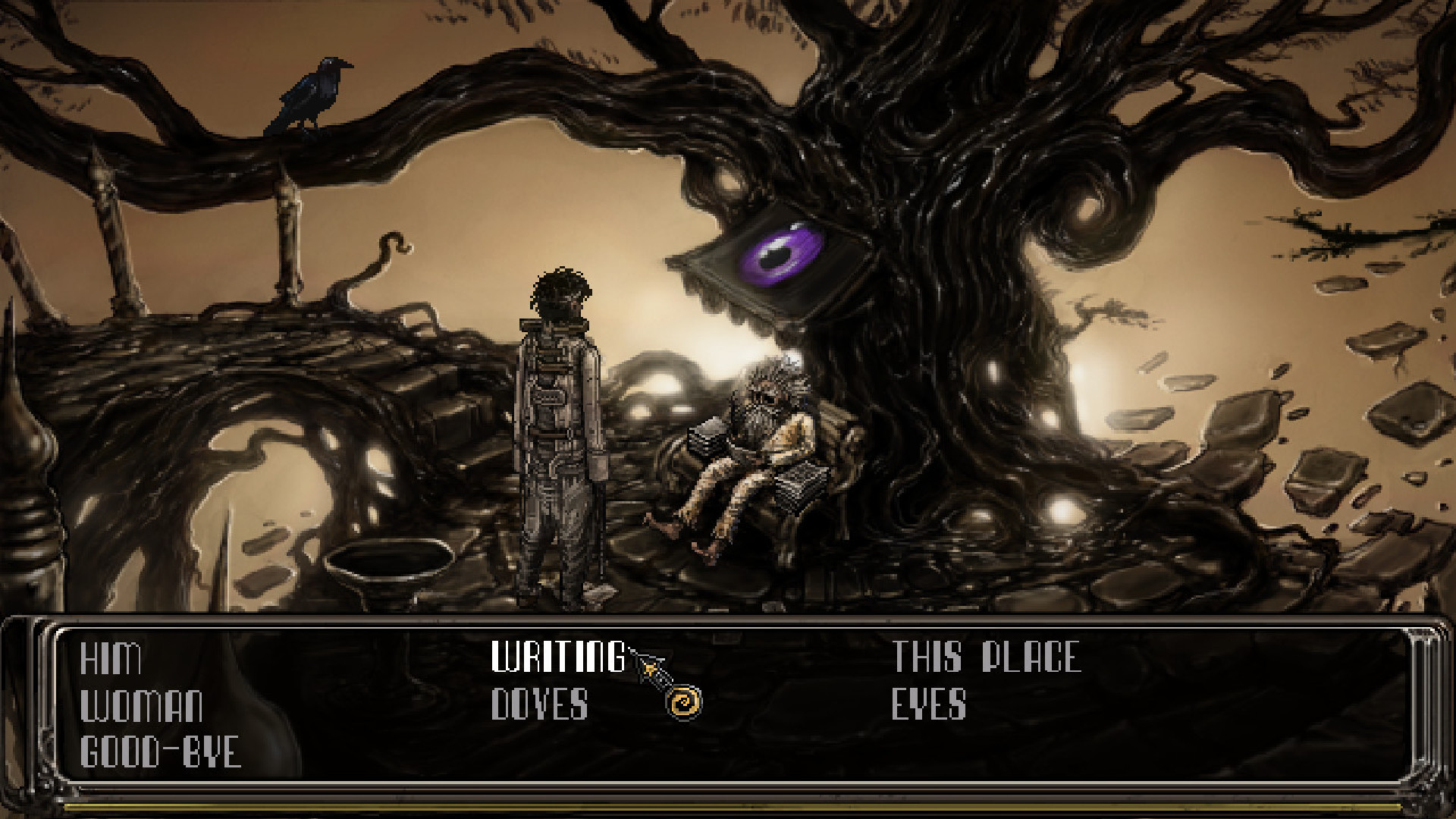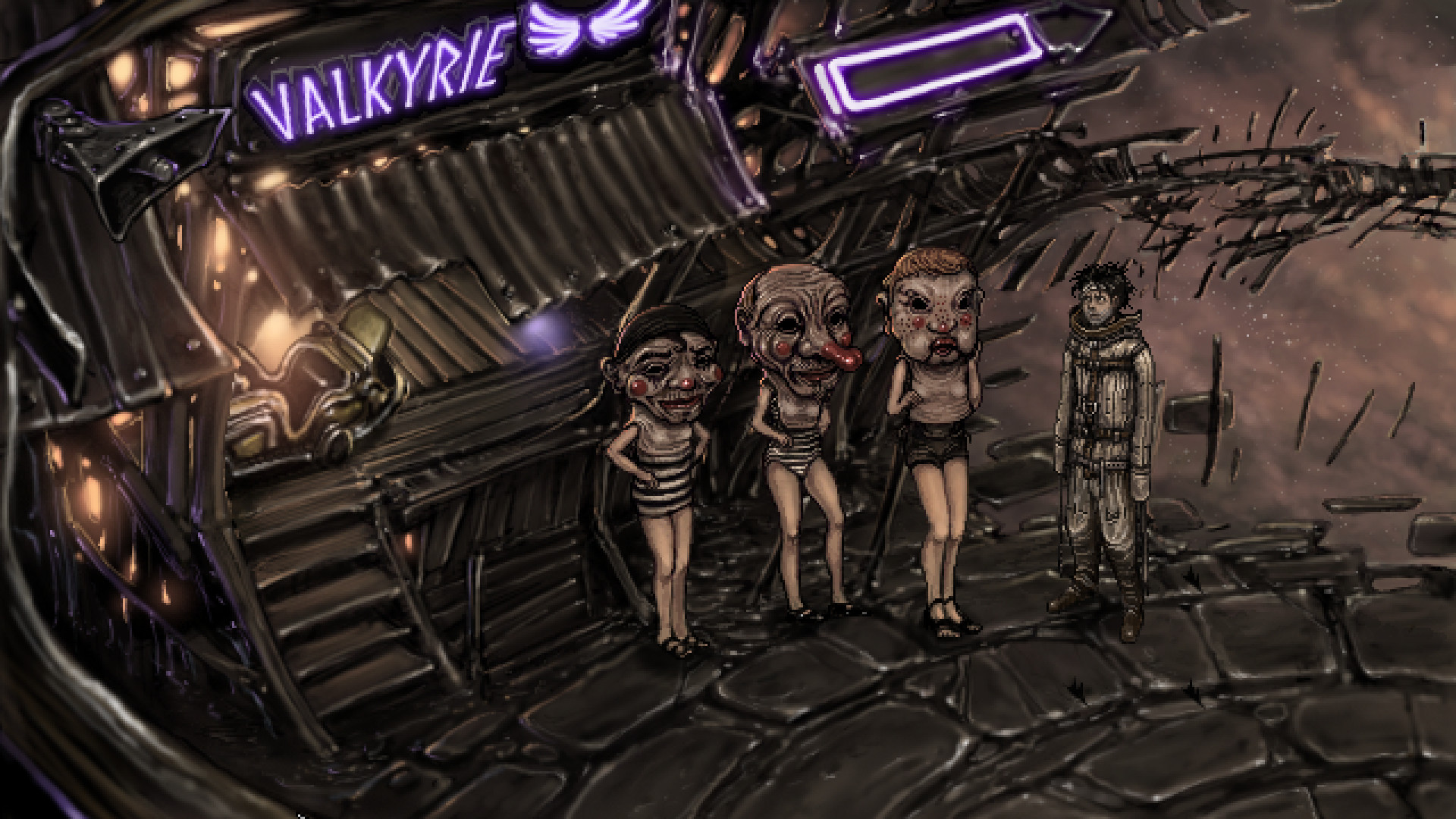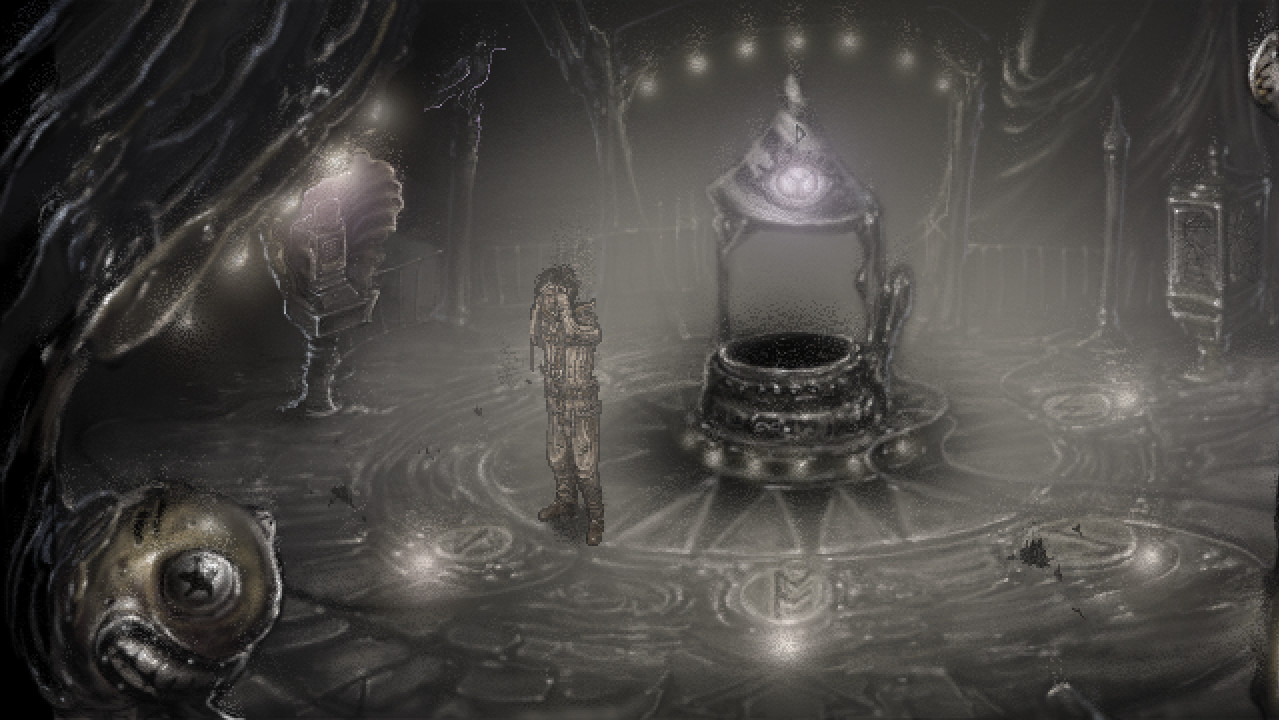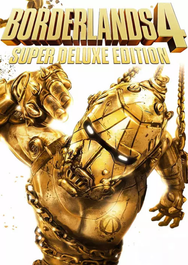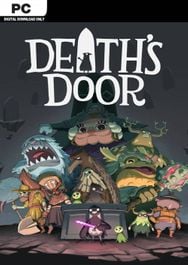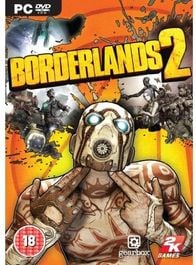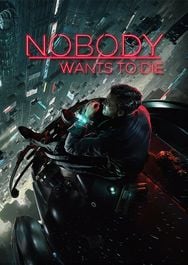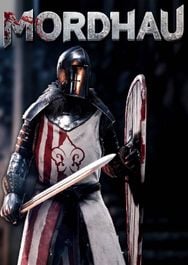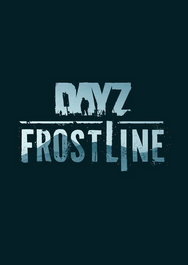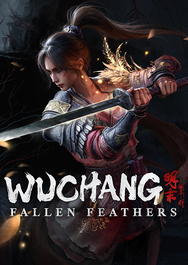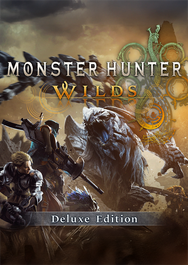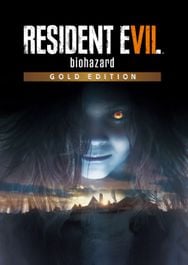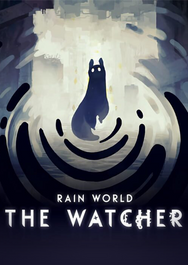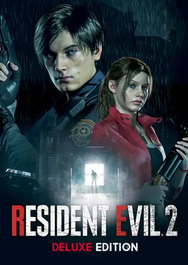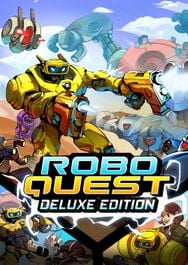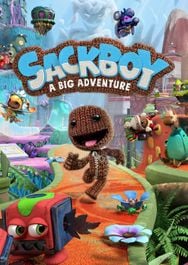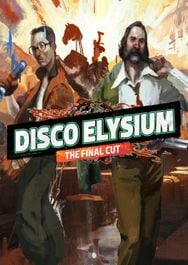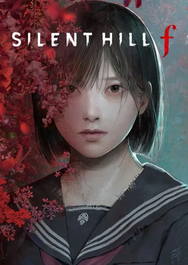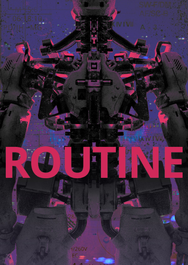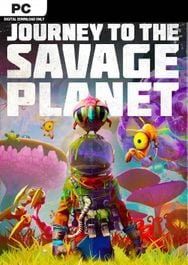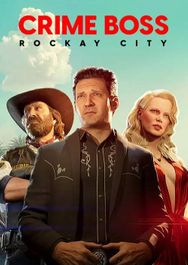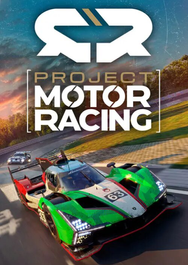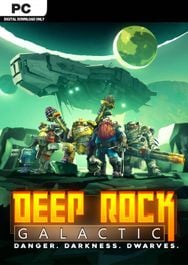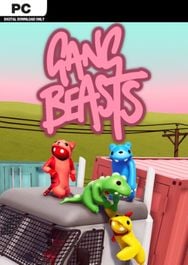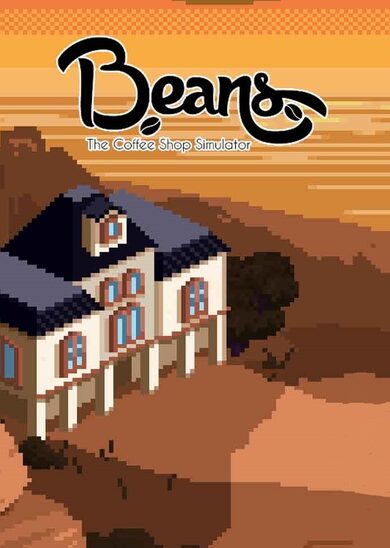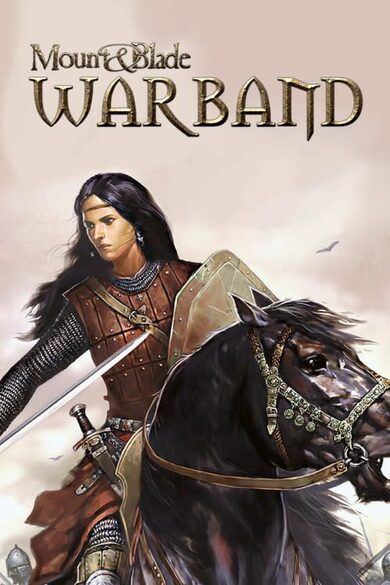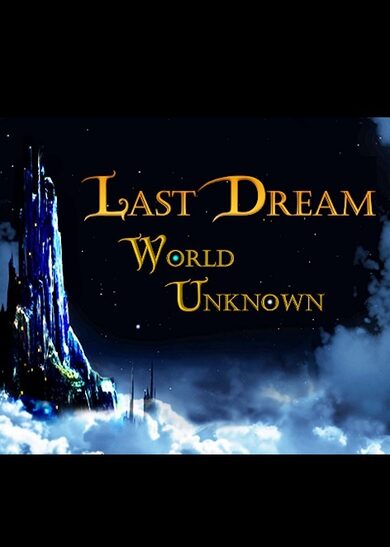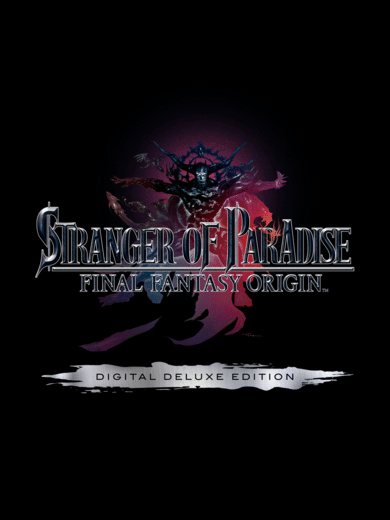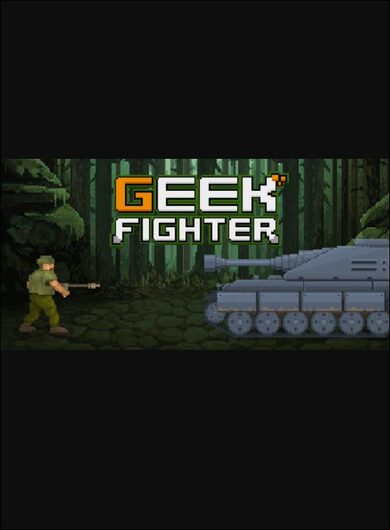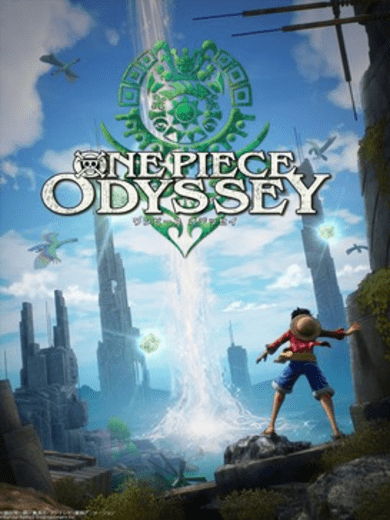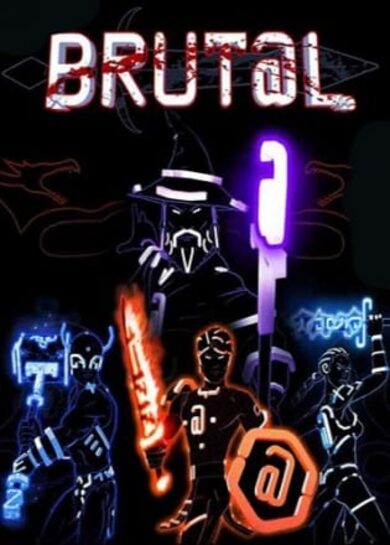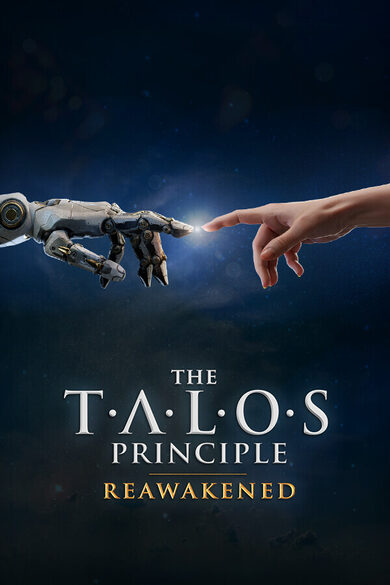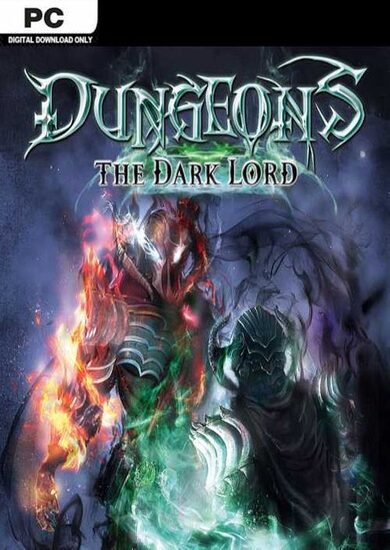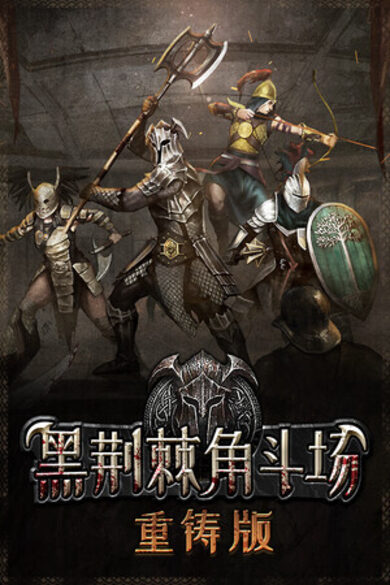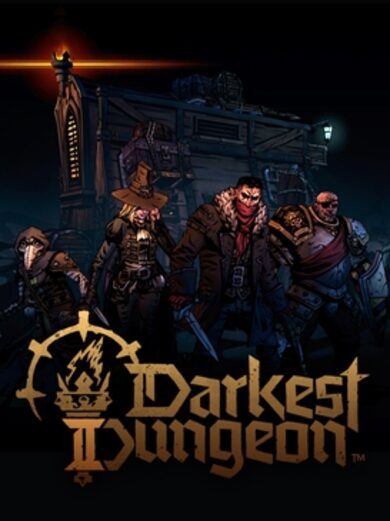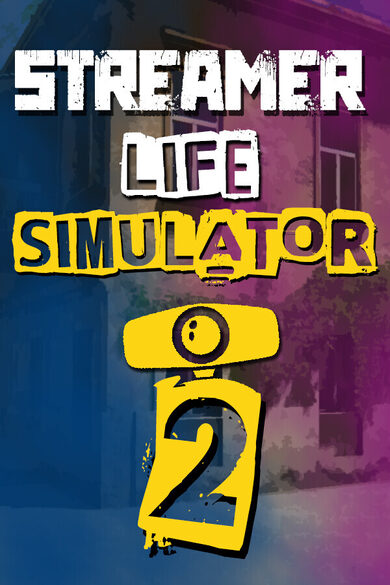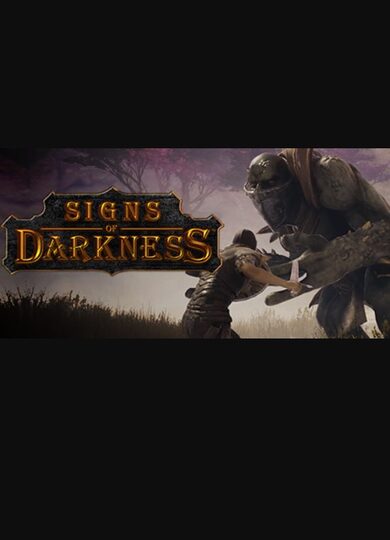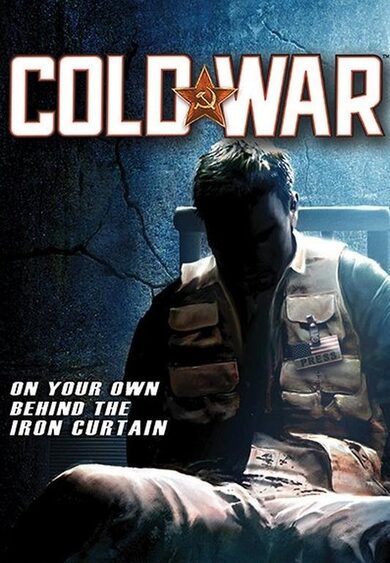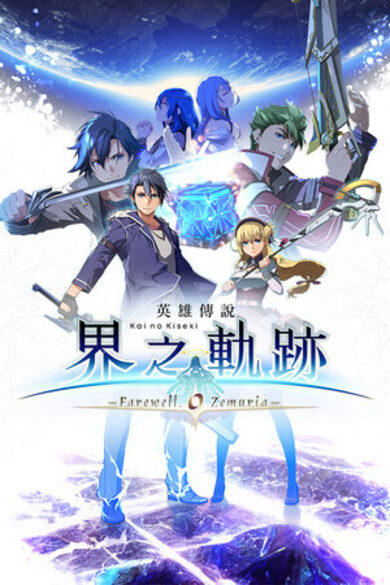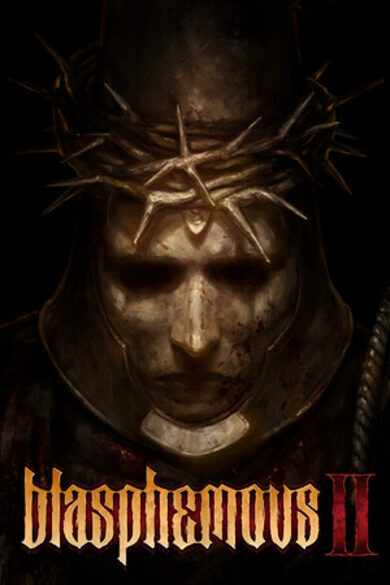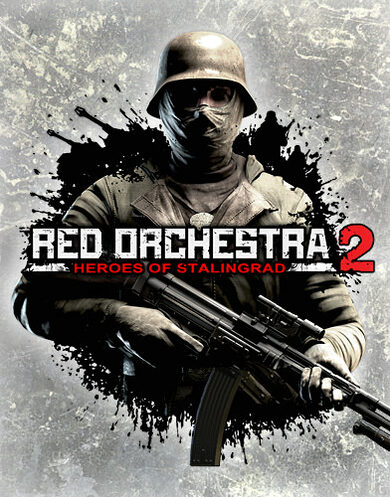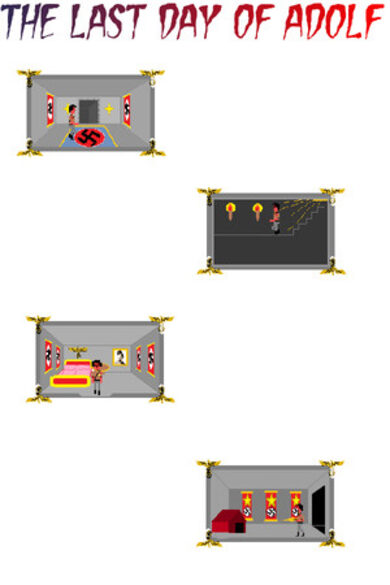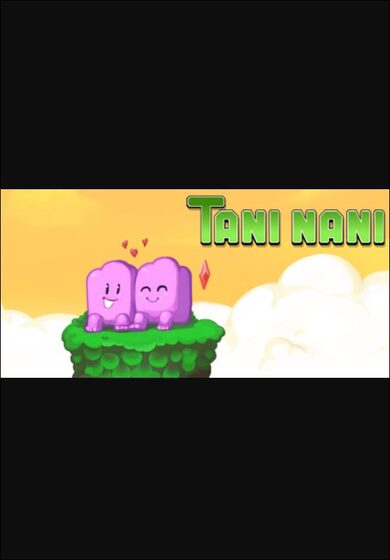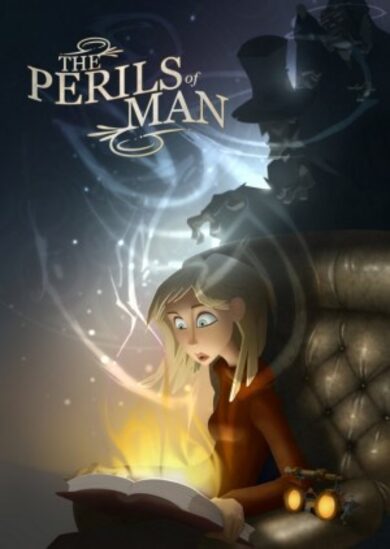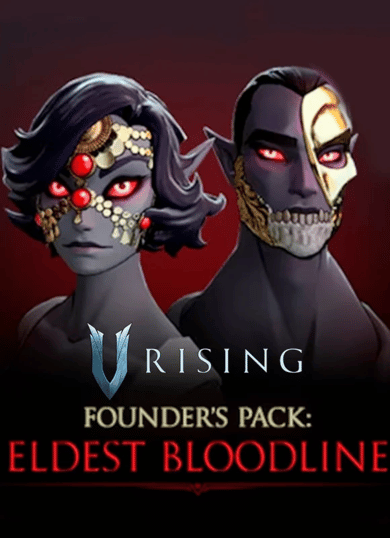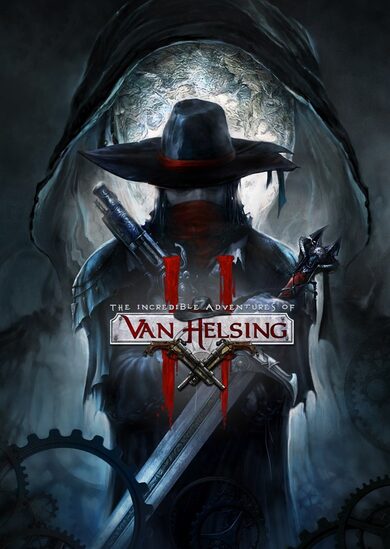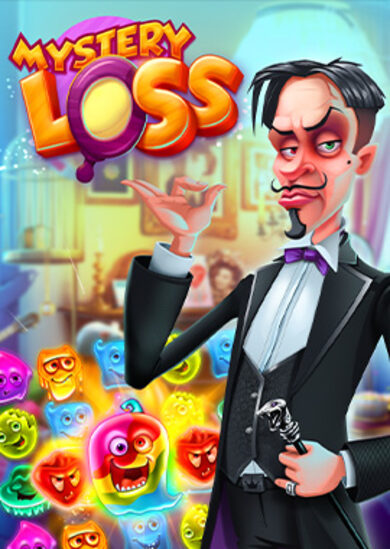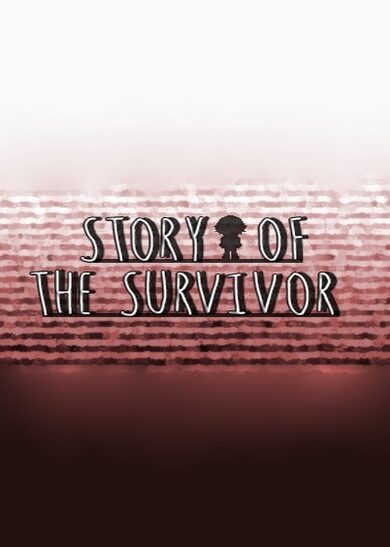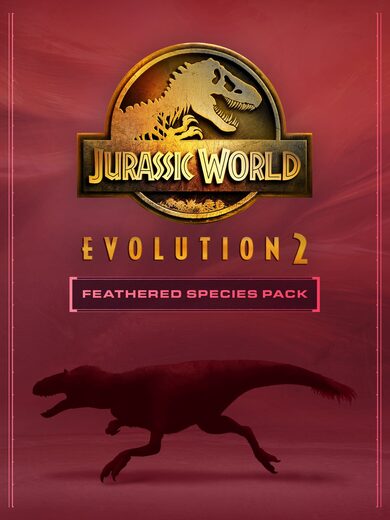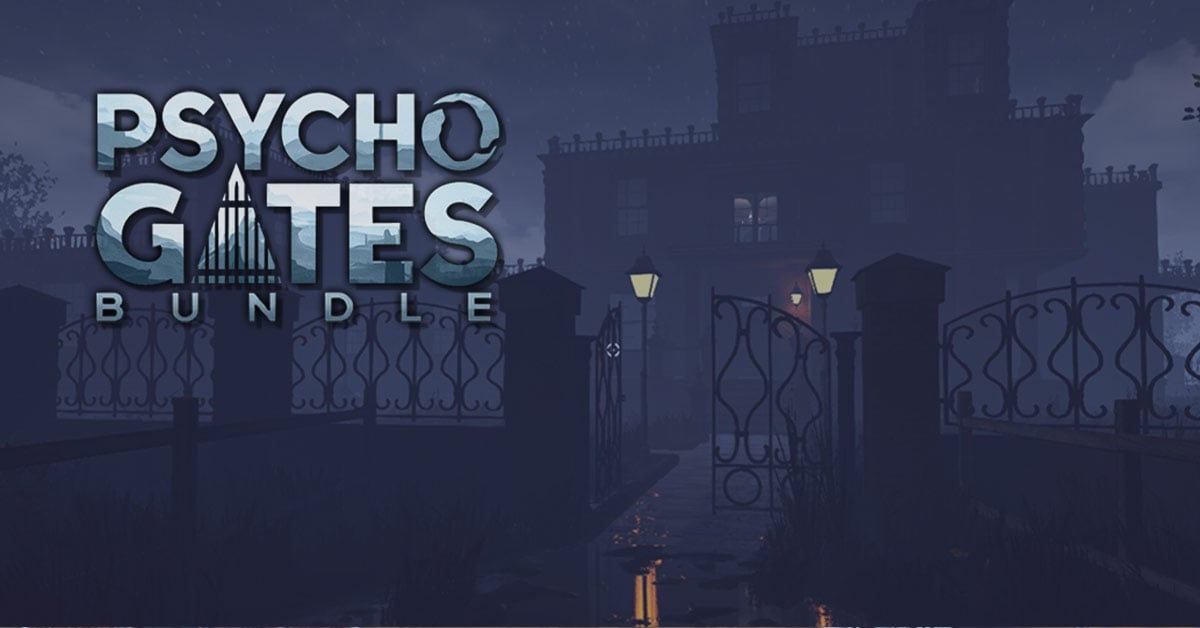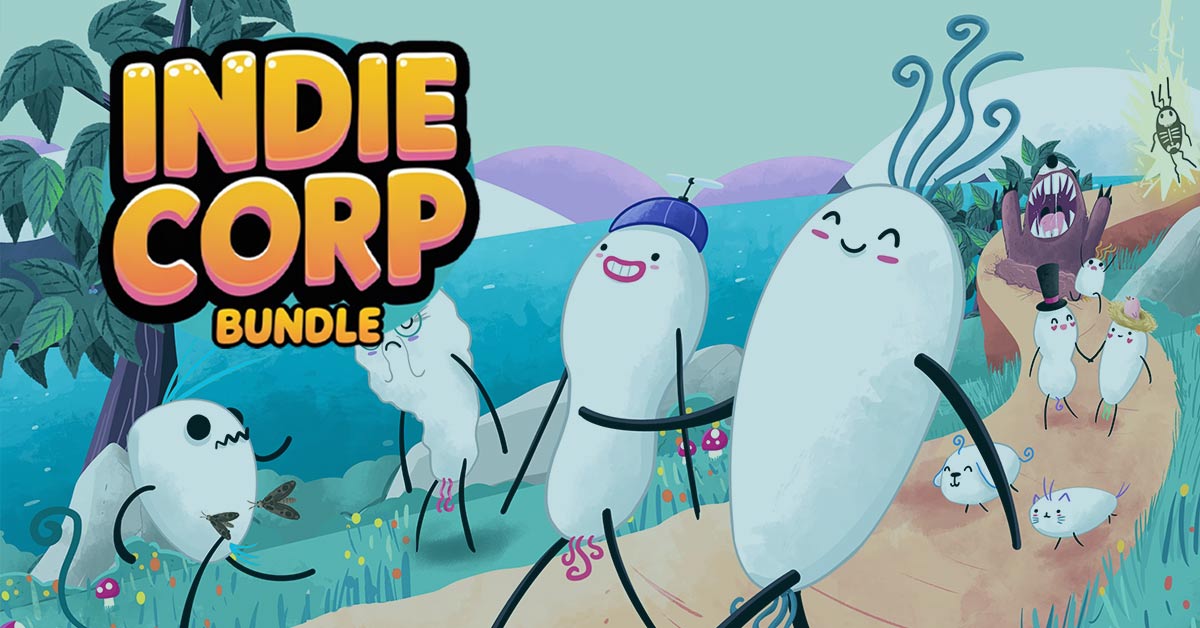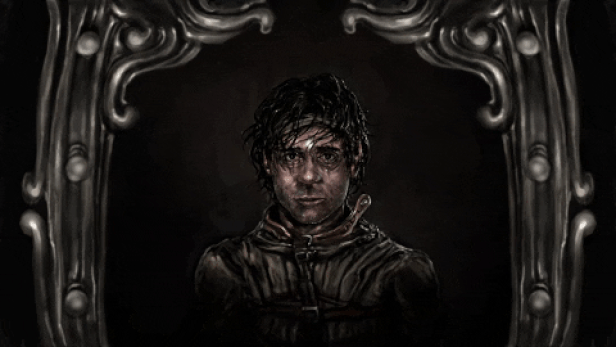
You awake in a nightmarish carnival and watch a golden-haired woman hurl herself down a bottomless well for your sake. You seek clues and help from jeering ravens, an eyeless scribe, a living furnace, a mismade mermaid, and many more who dwell within the park. All the while, a shadow shrieks from atop a towering roller-coaster, and you know that until you destroy this Dark Thing, the woman will keep jumping, falling, and dying, over and over again....

Strangeland is a classic point-and-click adventure that integrates a compelling narrative with engaging puzzles. For almost a decade, we've been working on a worthy successor to the fan-acclaimed Primordia, and we are proud, at long last, to share our second game.
Strangeland is a place like no other. Even in the real world, carnivals occupy a twilight territory between the fantastic and the mundane, the alien and the familiar. In their funhouse mirrors, their freaks, and their frauds, we see hideous and haunting reflections of ourselves, and we witness the wonder and horror of humanity in just a few frayed tents, peeling circus wagons, dingy booths, and run-down rides. Strangeland, of course, is most definitely not the real world. Indeed, unraveling the connections between this nightmare and the real world is the game's central mystery, and finding a way out is its central challenge.
As you explore Strangeland, you will need to gather otherworldly tools and win strange allies to overcome a daunting array of obstacles. Forge a blade from iron stolen from the jaws of a ravenous hound and hone it with wrath and grief; charm the eye out of a ten-legged teratoma; and ride a giant cicada to the edge of oblivion.... Amidst such madness, death itself has no grip on you, and you will wield that slippery immortality to gain an edge over your foes.
Navigating this domain of monsters and metaphors will require understanding its denizens and its enigmas. Unlike many adventure games that offer a linear experience and single-solution puzzles, Strangeland lets you pick your own way, your own approach, and your own meaning—one player might win a carnival game with sharpshooting, another by electrical engineering; one player might unravel a strange prophet's wordplay while another gathers visual clues scattered throughout the environment. Ultimately, Strangeland's story will be your story. You are not the audience; you are the player.
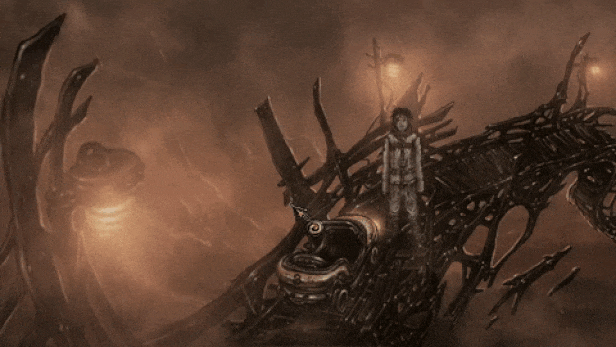

- Approximately five hours of gameplay, replayable thanks to different choices, different puzzle solutions, and different endings
- Breathtaking pixel art in twice Primordia's resolution (640x360—party like it's 1999!)
- Dozens of rooms to explore, with variant versions as the carnival grows ever more twisted
- An eccentric cast, including a sideshow freak, a telepathic starfish, an animatronic fortune-teller, and a trio of masqueraders
- Full, professional voice over and hours of original music
- A rich, thematic story about identity, loss, self-doubt, and redemption
- Integrated, in-character hint system (optional, of course)
- Hours of developer commentary and an "annotation mode" (providing on-screen explanations for the references woven throughout the game)
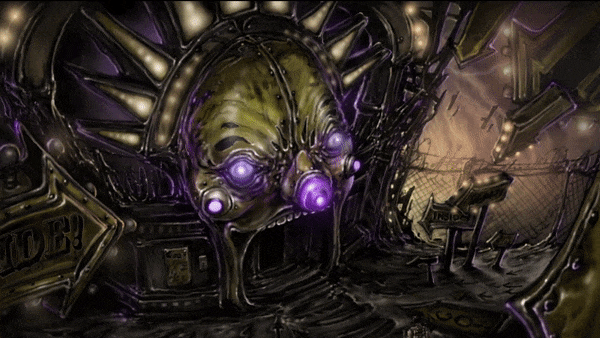

At Wormwood Studios, we make games out of love—love for the games we've spent our lifetimes playing, love for the games we ourselves create, and love for the players who have made all of those games possible. We know that players invest not just their money and time in the games they play, but also their hope and enthusiasm. And we want to make sure that players receive a rich return on that investment by creating games that provide not only a fun, challenging diversion for a few hours, but also lasting memories to keep for years.
We think the best way to achieve that with Strangeland is to adhere to the genius of the adventure genre: the marriage of challenging puzzles and thrilling exploration, on the one hand, with an engaging narrative, on the other. At the same time, we've tried to remove the punitive aspects of adventure games (deaths, dead ends, illogical puzzles, pixel hunting, backtracking, etc.). Within this framework, we add uncanny visuals, memorable characters, and thought-provoking themes. The result for Primordia was a game that has received thousands of positive player reviews, and we have refined our approach further with Strangeland. We hope it will not disappoint the players who have given us such great support and encouragement over the years! And we hope that it will find a place in the hearts of new players as well.
The seed of Strangelands narrativewas sadness, and the soil in which it fell included the works of Mervyn Peake, Francisco Goya, and Ray Bradbury.
In the fall of 2016, my grandmotherwho had been an anthropologist and in retirement became a genealogistdied after many years of suffering from dementia. Two weeks later, her husband, my step-grandfather, died as well. He had been a NASA engineer; it was he who got me my first computer in the early 1980s and taught me to program on it. The last years of their lives together were consumed by her illness and his vain attempts to design or divine some solution for it.
They had asked that I see that their belongings were properly distributed among the family, so after their funeral, I spent the rest of the day going through their small apartment, figuring out what should be sent to whom. Dementia deletes the world from the self and the self from the world. And a parallel physical deletion had happened as my grandparents had grown old and had moved into smaller and smaller lodgings, culminating in a little one-bedroom apartment and a tiny hospice room. The objects that remained were physical tokens of their most treasured memories: a box of slides from a trip to the Shetland Islands; a flag that had orbited the earth aboard the space shuttle; a family tree stretching back hundreds of years; a Western Union telegram calling my grandfather up for service in the Korean War; the beloved books of an anthropologist and an engineer; a bronzed baby shoedozens of such souvenirs of their trip through life. And of course all the pills, schedules, instructions, and plans that were the debris of the long defeats they both had suffered at the hands of illness.
Strangeland began as a way for me to process the sadness I felt about the whole situation. What it means to watch the slow-motion destruction of someone you love, thinking you can save her, but not being able to. The danger of seeing life as a series of puzzles to be solved. The way love can drag you down as well as lift you up. And also just the odd truth that if you dissected any one of us, you would find so many marvelous things. Its not like my grandparents were more special than everyone else. Their adventures, quirks, relicseveryone has an allotment of those, a lifetime of eccentric knowledge and unique experiences. What would it be like to navigate those facets of another person? What would it be like to be burgled of those treasures by time and disease?
For me, the development of a game depends upon raiding my ownstock of treasures and finding the right pieces, kept from other beloved games, books, movies, art, and experiences, that can be put together into the shape Im imagining. The loss of my grandparents was a piece with particularly jagged edges, but I found they fit well with three sets of works that had long been important to me.
In the presence of real tragedy you feel neither pain nor joy nor hatred, only a sense of enormous space and time suspended, the great doors open to black eternity, the rising across the terrible field of that last enormous, unanswerable question. - Mervyn Peake, Titus Groan
As Victor, James, and I began discussing Strangeland, the first piece I took was from Mervyn Peakes Gormenghastseries.Anyone who has read it knows that the titular castle is as much the central character as its nominal protagonist Titus. (Consider the first of its features encountered by the reader: the Tower of Flint, patched unevenly with black ivy, arising like a mutilated finger from among the fists of knuckled masonry and pointed blasphemously at heaven. At night the owls made of it an echoing throat; by day it stood voiceless and cast its long shadow.) I wanted our setting, like Gormenghast, to have a personality, so that in exploring the place, players will feelas I did in exploring my grandparents apartmentthat they are exploring the imprint of its inhabitants.
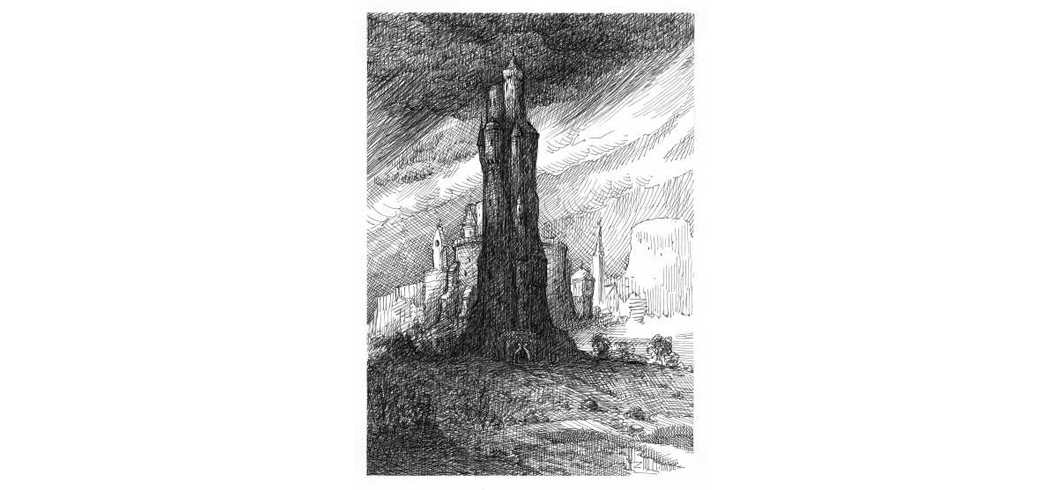
The world is a masquerade. Faces, costumes, voicesall pretend. We all wish to appear as we are not, we deceive ourselves, and in the end, we do not even recognize ourselves. - Francisco Jos de Goya y Lucientes, Los Caprichos(6)
The next treasure from my trove came from Francisco Goya, whose art I studied while living in Madrid 20 years ago.In college, I wrote (though never released) a mid-length work of interactive fiction in which the player visited a gallery of a pseudo-Goyas works and discovered he could (and indeed must) enter those works and engage in various adventures within them. The force Goya exerted on me has, if anything, grown over the intervening time. It is not just specific paintings (such as the famous image of Saturn devouring his child), but the overall mood and mentality of his work as a whole. The distillation is, for me,Los Caprichosa series of captioned etchings that convey the way in which supernatural horror springs from the everyday misery that is all around us. The characters of Strangelandare a blend of Gormenghasts eccentric weirdos and Los Caprichoss grotesque ordinary folk.
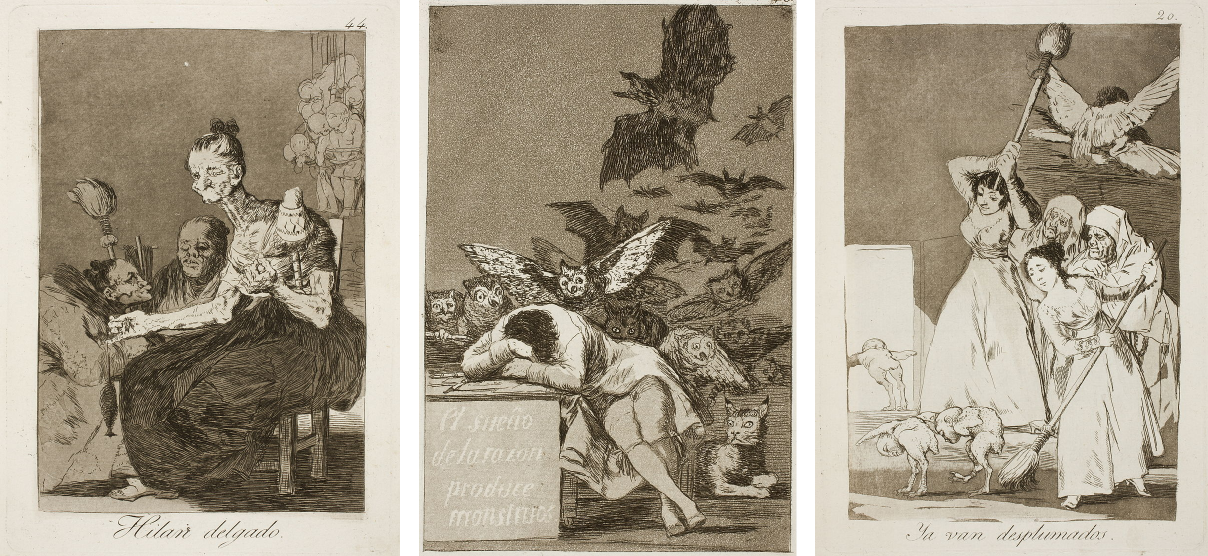
He expected me to stay with the family to mourn, but I got out of the car anyway and I ran down the hill toward the carnival. It didnt occur to me at the time, but I was running away from death, wasnt I? - Ray Bradbury, as interviewed in Mr. Electrico
Finally, when Victor suggested a carnival for the setting, my mind naturally turned to Ray Bradbury, the great humanist of science fiction, who came time and again to the theme of carnivals (most famously inSomething Wicked This Way Comes). With Bradbury, uncanniness and horror are used in service of a fundamental decency: to show us the humanity in what seems freakish and the freakish inhumanity that can fester inside anyone, no matter how outwardly conforming. That moral compass (albeit in the hands of a much less able navigator than Bradbury!) was something for me to use here, too.
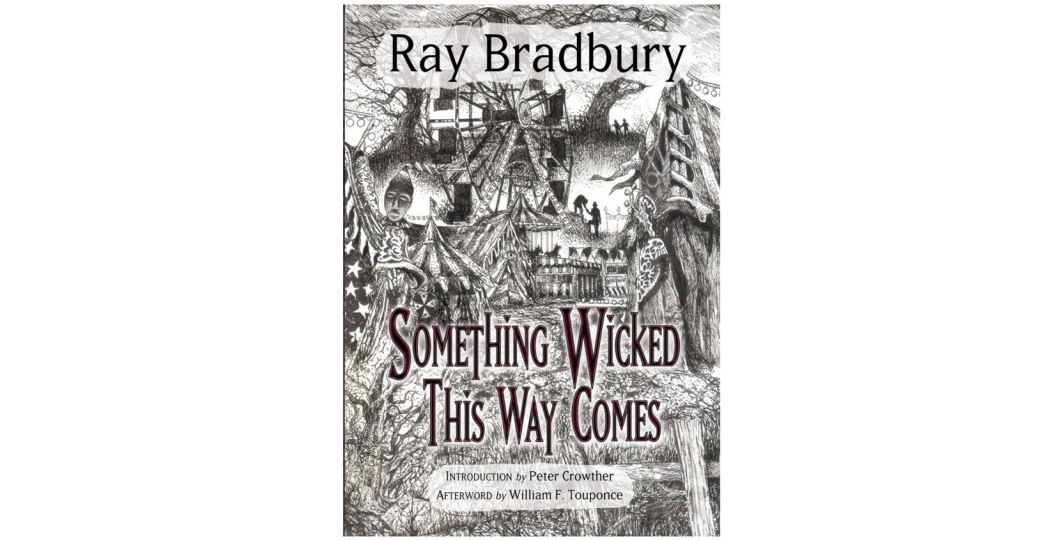
To be clear, these arent the only influences or even the main influences on Strangeland. We found inspiration in games like Sanitariumand Weird Dreams, shows and movies like The Prisoner and Eraserhead, religious and mythological works, etc. The work of creating Strangeland is weaving all these disparate strands into something that holds togetherand more important, is satisfying, fun, and fresh as a game.
The seed of Strangelandwas sadness, but it blossomed into hopes, among which is the hope that we will find a way to share the souvenirs the three of us have treasured from our own trips through life.
Ill end with a poem from my great-aunt, whose Inheritors was such an inspiration for Primordia. A lifelong beachcomber (literally and metaphorically), she describes a similar hope... that the collector might herself undergo a sea-change and yield a treasure for someone else to collect:
Last Will
Sea,skyandsand,
Remember me,
Beloved three,
Be kind to me;
I loved you defenselessly.
Eternal, primeval,
Holy trinity,
Wash, shriveanduse me,
Tenderly;
I was your creature when I was alive.
Master makers of jeweled toys,
Shape meandshine me into aseaprize
Found by a boys
Quick eyes in glad surprise.
Sea,skyandsand,
Let me one day
A small childs happy summer memory.
Minimum Setup
- OS: Ubuntu. Debian
- Processor: 2.7 GHz Dual Core (and above. can run on single core)Memory: 2 GB RAM
- Memory: 2 GB RAM
- Graphics: OpenGL. DirectX 5
- Storage: 2 GB available space
[ 6391 ]
[ 5919 ]
[ 2907 ]
[ 2497 ]
[ 1732 ]
[ 1040 ]
[ 32822 ]
[ 867 ]
[ 45561 ]

